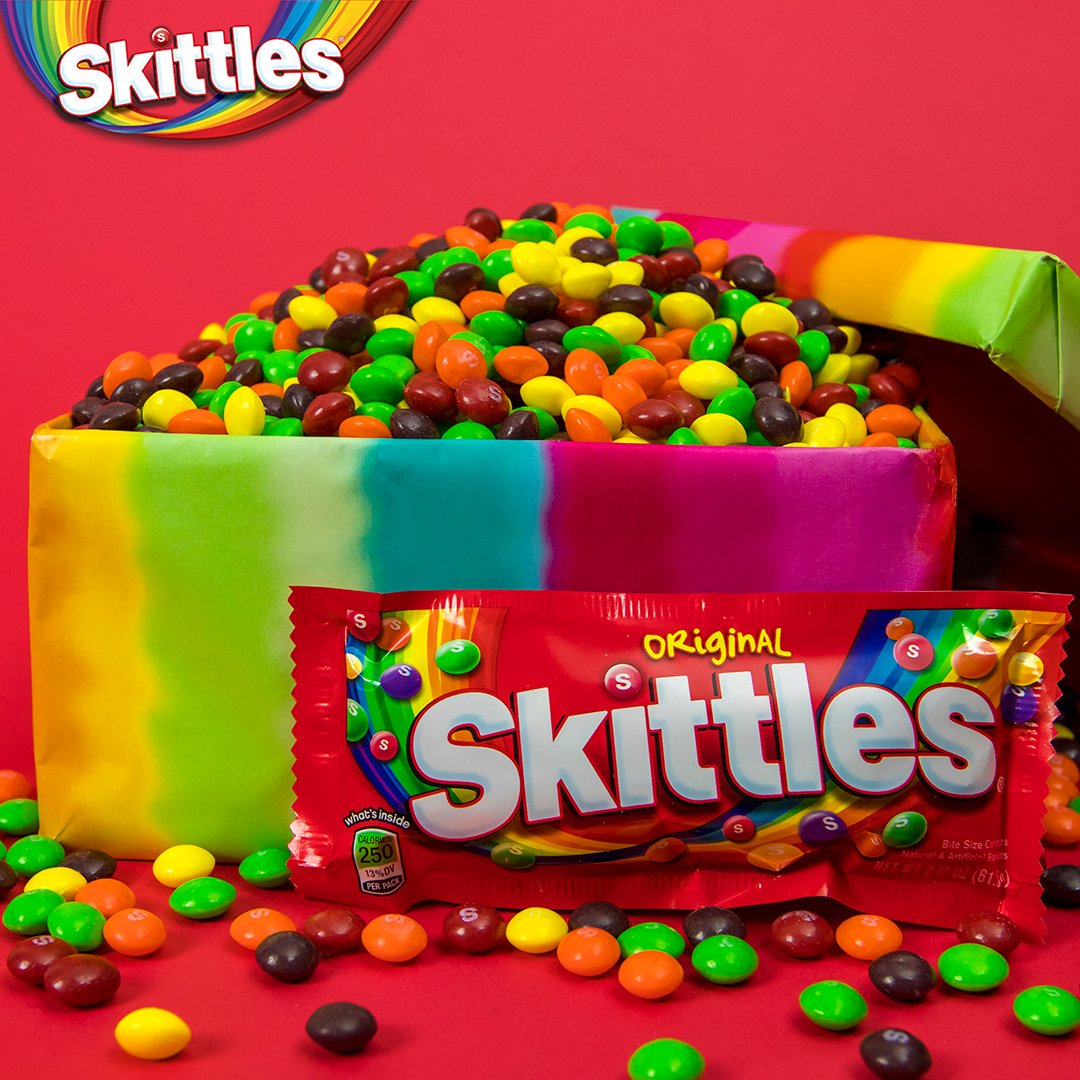
#Candy #Skittles #TastetheRainbow
The candy that we are so familiar with today first came into existence in 1974. Skittles spent the first five years of their lives solely in Britain since it wasn’t until 1979 that North America got a chance to taste the rainbow.
There is much speculation surrounding the creator of Skittles, as nobody really knows exactly who first made them. One story suggests that a British man named Mr. Skittles looked at a rainbow one day and wondered how it would taste. Other sources state that the Wrigley Company, founded in 1891, created candy and other confectionery, including Extra chewing gum. However, although Wrigley produces Skittles today, it is widely accepted that an unknown British company was the original manufacturer.
After three years of being imported to North America from the UK, Skittles started being manufactured in the US and Britain. There were very few flavors compared to the varieties available today. Consumers enjoyed grape, orange, strawberry, lemon and lime flavors.
The famous slogan ‘Taste the Rainbow’ came about in 1994 and is one of the longest-running advertising campaigns ever. D’Arcy Masius Benton & Bowles was a New York advertising agency that had been up and running since 1985, and they created the whole theme for the Skittles advertising campaign.
The similarities between M&Ms and Skittles have been noted through the years. The appearance and colors of the candy are very similar, but while M&Ms have a chocolate center, Skittles have a fruity one. A colorful array of small candy pieces can be found in both varieties of confectionery, and where M&Ms have a small ‘M’ printed onto each piece, Skittles have a small ‘S’.
More than 65 countries today experience the joys of eating Skittles. It is the second most popular candy in the whole of the United States and the most popular among children in North America. American footballer Marshawn Lynch was made a spokesman for Skittles after he claimed that the candy had helped him to get where he is today in the world of sport.
The beginning of the 21st century saw new products in the Skittles range, and Sour Skittles were introduced in 2000. By 2004, people could purchase Skittles Bubble Gum, and 2006 saw the first limited-edition candy from Skittles – X-Treme Fruit. While the original flavors can still be found, wide other varieties exist today, including Tropical, Wild Berry, and Smoothie Mix.
In 2009, Skittles became involved in social media, utilizing the internet and social platforms to reach more customers. As well as having its own website, Skittles also boasts a Facebook page with over 25 million likes, a popular Twitter account, and a heavily-subscribed YouTube channel.
Also, in 2009, Skittles were slightly changed in a bid to appeal to vegans and vegetarians. The gelatine used in the recipe was changed to vegan, meaning they now contain no animal products.

Comments
Post a Comment